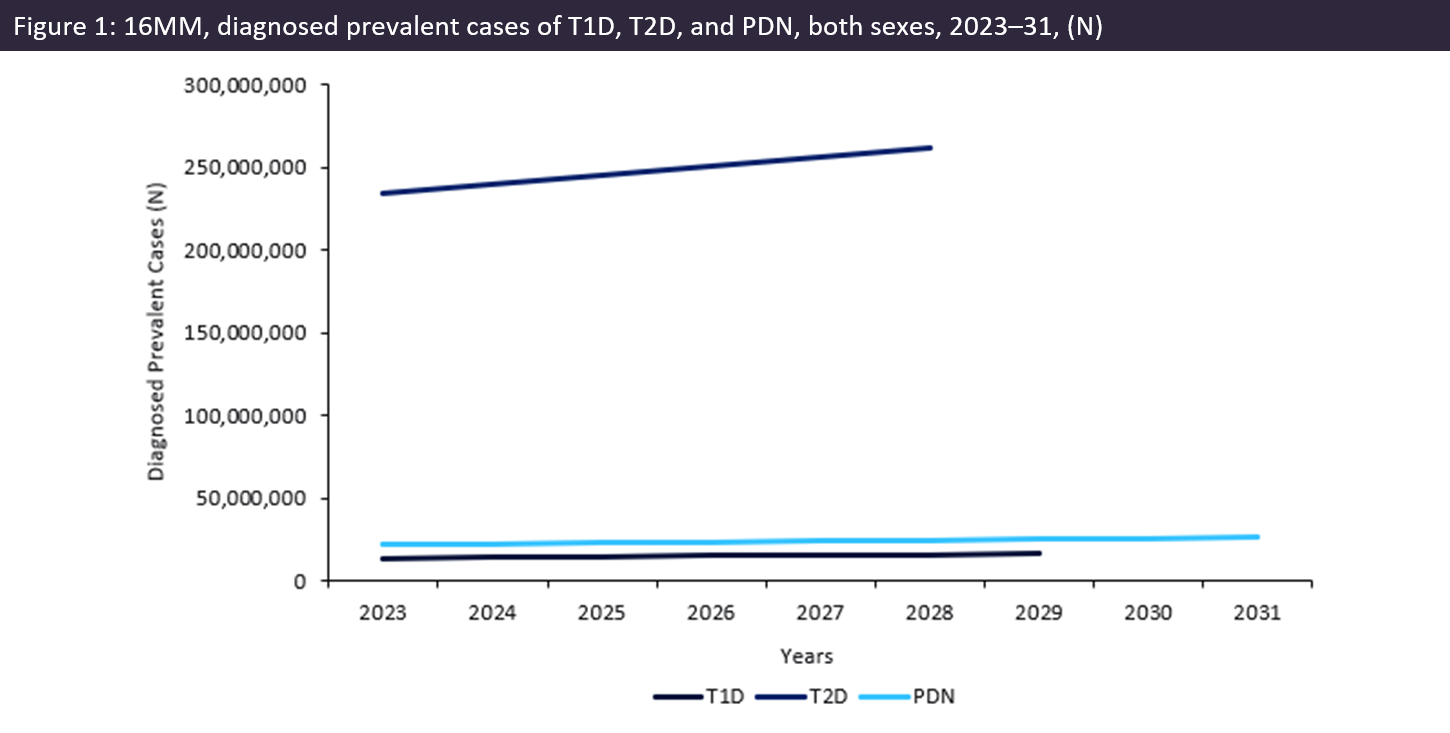American Diabetes Month is observed every November, and World Diabetes Day falls on 14 November. Both serve as critical platforms for raising awareness about the escalating diabetes epidemic and its long-term complications, such as diabetic neuropathy. Diabetes is a chronic illness that affects millions worldwide and is projected to continue to affect more each year. Awareness campaigns contribute to better funding for research and improved access to care and support for those living with diabetes. They can also encourage governments to implement strategies that help reduce the prevalence of diabetes and its complications, helping individuals lead healthier lives.
Epidemiology trends from GlobalData’s Epidemiology and Market Size Database show that diagnosed prevalent cases for each of the two main types of diabetes are expected to increase in the 16 major markets combined (16MM: Australia, Brazil, Canada, China, France, Germany, India, Italy, Japan, Mexico, Russia, South Africa, South Korea, Spain, the UK, and the US), with type 1 diabetes (T1D) growing from approximately 13.5 million cases in 2023 to 16.2 million cases in 2029, and with type 2 diabetes (T2D) growing from 234 million cases in 2023 to approximately 262 million cases in 2029. Diagnosed prevalent cases of painful diabetic neuropathy (PDN) are expected to increase from approximately 22 million cases in 2023 to over 25 million cases in 2031 (Figure 1). Additionally, India, China, and the US are the top three markets with the largest numbers of diagnosed prevalent cases of T1D, T2D, and PDN.
The increase in cases of all types of diabetes, and therefore also in cases of PDN, can be attributed to several factors such as ageing populations, sedentary lifestyles, unhealthy diets, population growth, and lack of awareness. For example, population ageing contributes to the increase in T2D as this form of diabetes is more common in older people. Sedentary lifestyles, including reduced physical activity due to increased screen time and desk jobs, contribute to a rise in obesity, which can lead to the body becoming more resistant to insulin and developing T2D. Unhealthy diets that are rich in processed foods, sugar, and saturated fats are major factors in the diabetes epidemic. A lack of awareness of the risks and symptoms of diabetes can lead to a delay in seeking treatment until the disease has progressed. PDN is often the result of prolonged high blood sugar levels. People who are not aware of preventive measures or proper disease management may not receive regular checkups or foot care, making them more vulnerable to neuropathy.
Overall, increasing diabetes awareness and implementing public health strategies that promote healthy lifestyles and diets are important tools for reducing the burden of diabetes and PDN. As diabetes is a highly prevalent disease that leads to several long-term complications, disease management is crucial in improving a patient’s quality of life.

US Tariffs are shifting - will you react or anticipate?
Don’t let policy changes catch you off guard. Stay proactive with real-time data and expert analysis.
By GlobalData





